|
|
Post by TheWallsScreamedPoetry on Nov 26, 2022 11:07:07 GMT
|
|
|
|
Post by TheWallsScreamedPoetry on Oct 9, 2023 10:58:02 GMT
|
|
|
|
Post by TheWallsScreamedPoetry on Jan 2, 2024 18:15:05 GMT
Of course every Doors fan knows by heart the cover of the eponymous debut LP.
Here are some of the photos not used as well as images of how the cover evolved. You can see how the other 3 Doors wore black sheets to cover their bodies and seem to appear as disembodied heads.
Part of this session ended up on the inside of WSITG in 1972.     
|
|
|
|
Post by TheWallsScreamedPoetry on Jan 3, 2024 12:01:23 GMT
If you have not seen it before this is the booklet from the 40 Year Edition of The Doors debut LP.  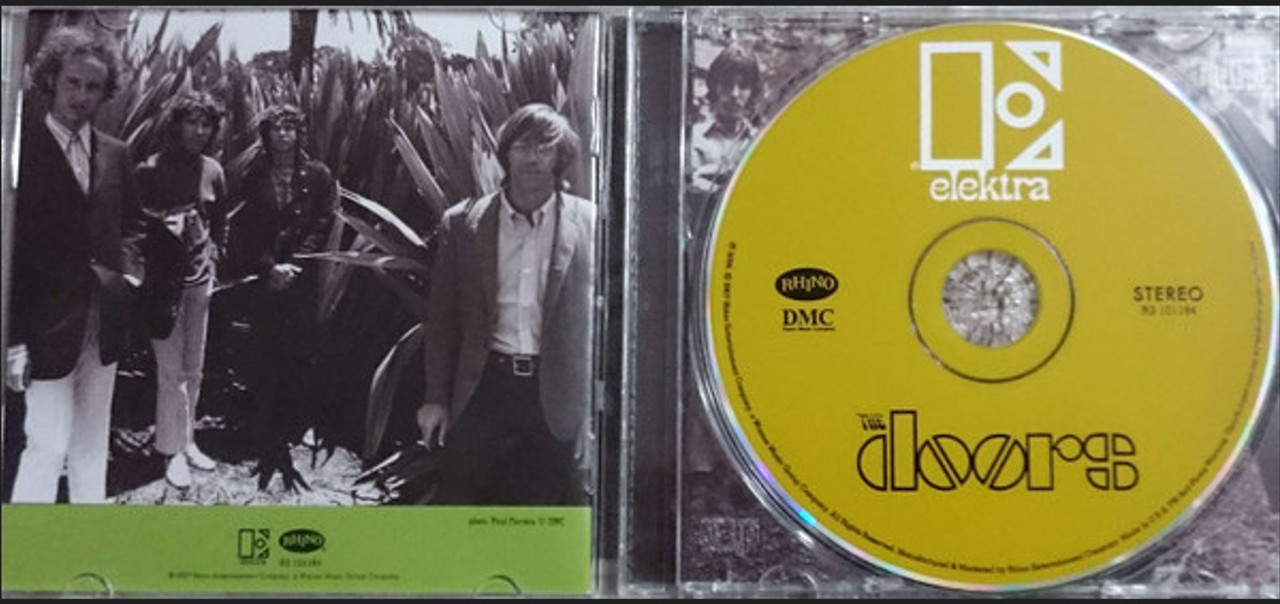        
|
|
|
|
Post by TheWallsScreamedPoetry on Jan 5, 2024 11:15:22 GMT
The Doors debut 50 years on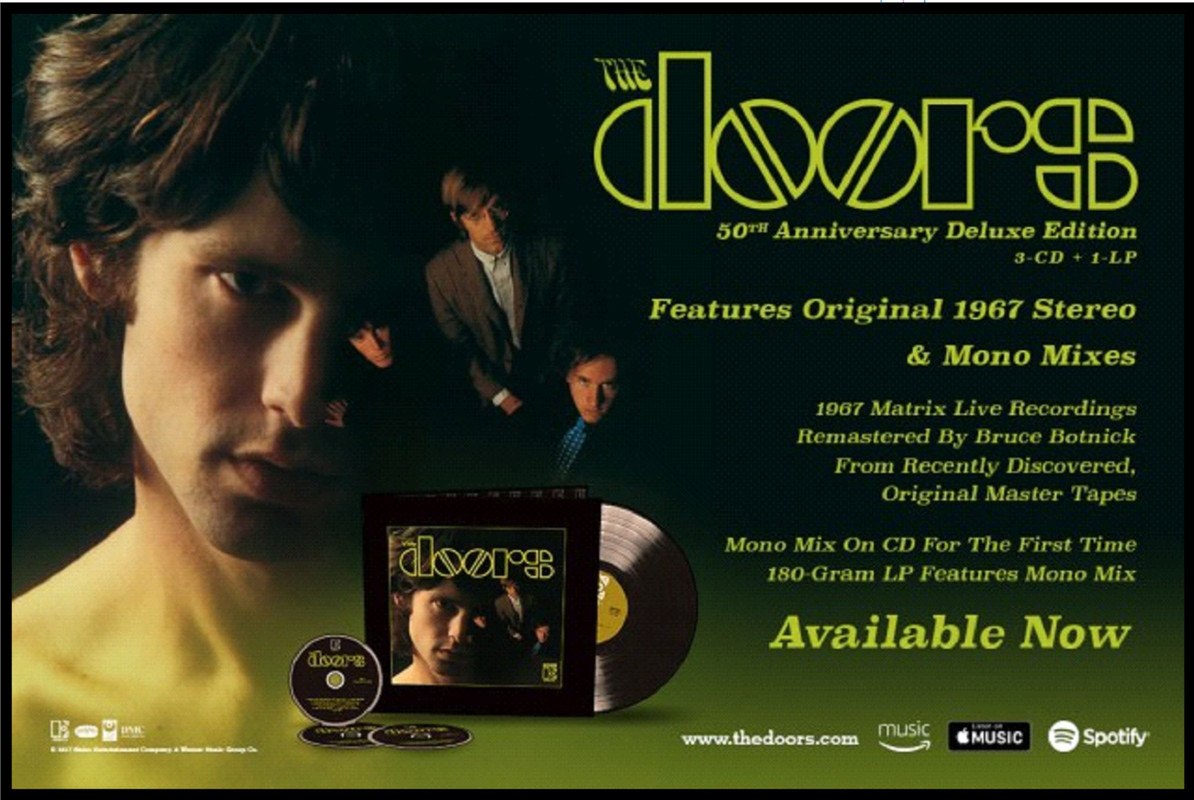 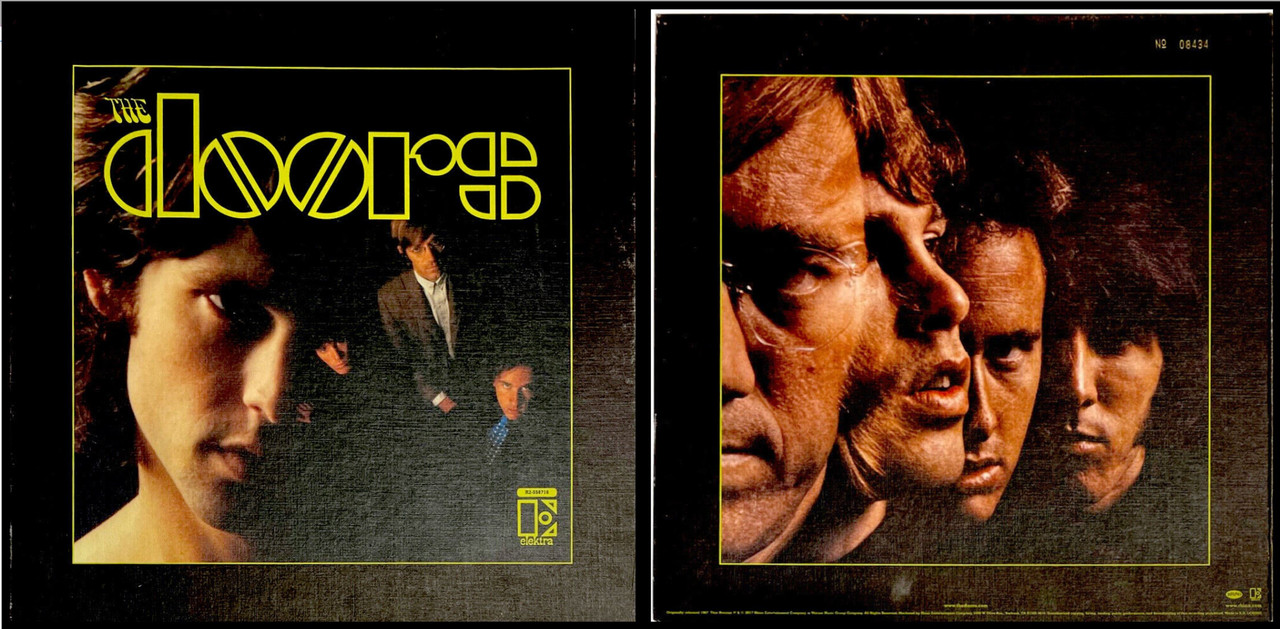      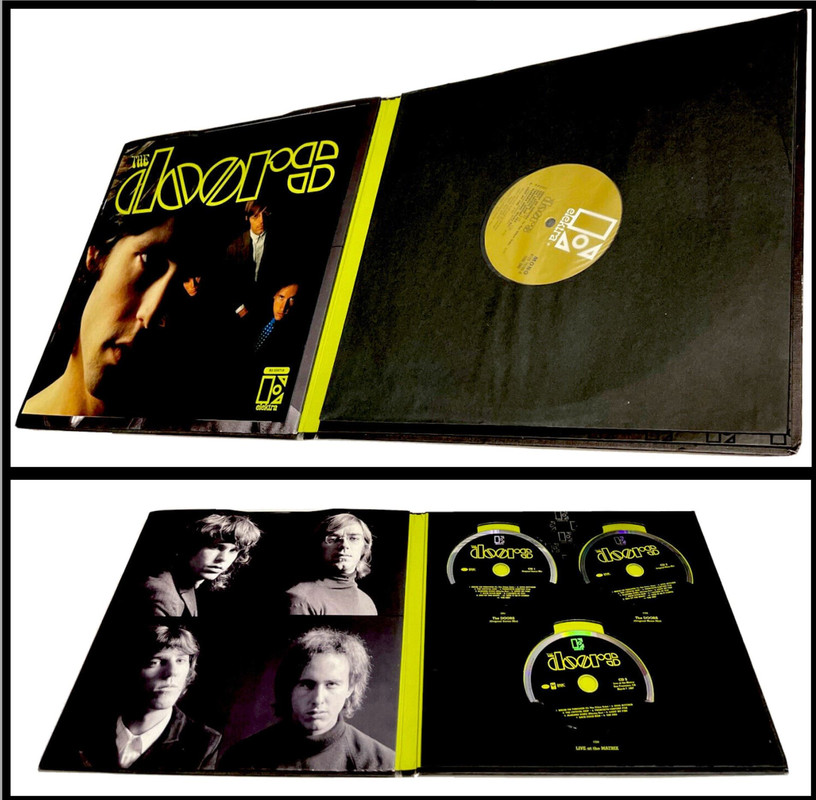 
|
|
|
|
Post by TheWallsScreamedPoetry on Jan 22, 2024 10:40:14 GMT
|
|
|
|
Post by TheWallsScreamedPoetry on Apr 25, 2024 11:17:52 GMT
The Booklet for the 50th anniversary       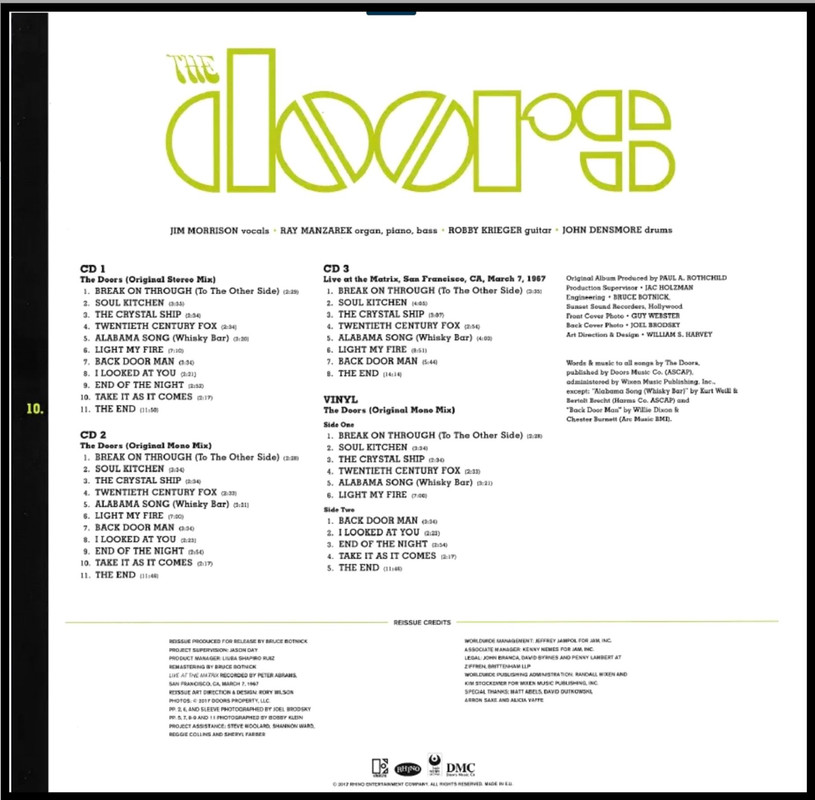 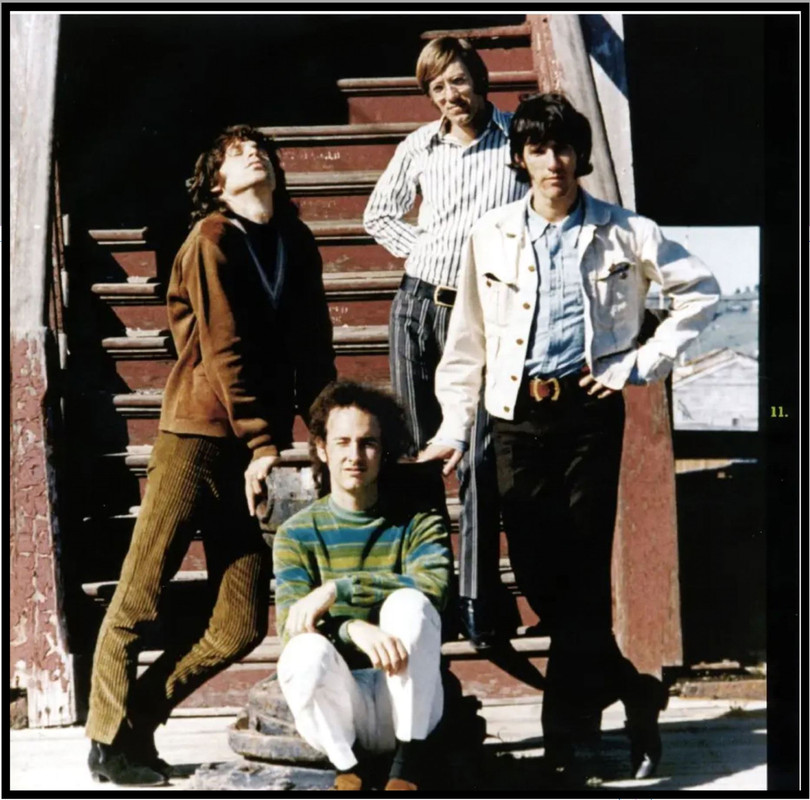
|
|
|
|
Post by TheWallsScreamedPoetry on May 12, 2024 11:41:55 GMT
 Mojo Navigator April 1967 Mojo Navigator April 1967    |
|
|
|
Post by TheWallsScreamedPoetry on Jun 1, 2024 10:07:19 GMT
The Doors The Doors VMP coloured vinyl with art print & French 1967 Light My Fire single June 2021     The VMP Vinyl Me, Please. Essentials series is a Record Of The Month club which releases a monthly Classic Album in specialist vinyl and additions. The VMP Vinyl Me, Please. Essentials series is a Record Of The Month club which releases a monthly Classic Album in specialist vinyl and additions.    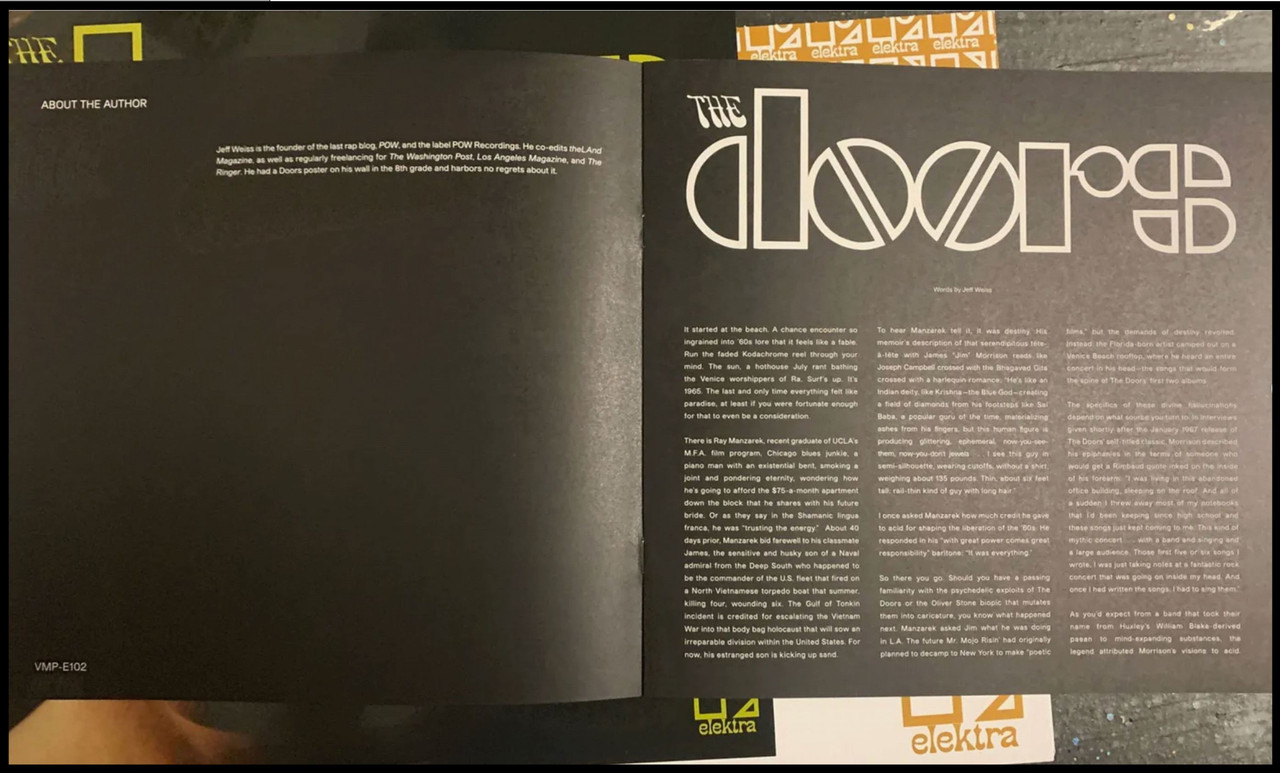 Part of the VMP Vinyl Me, Please. Essentials series from June 2021 pea green (Green & Gold Galaxy) vinyl Part of the VMP Vinyl Me, Please. Essentials series from June 2021 pea green (Green & Gold Galaxy) vinyl
that comes with a white vinyl copy of the French Light My Fire EP from 1967, a booklet and an art print of The Doors
|
|